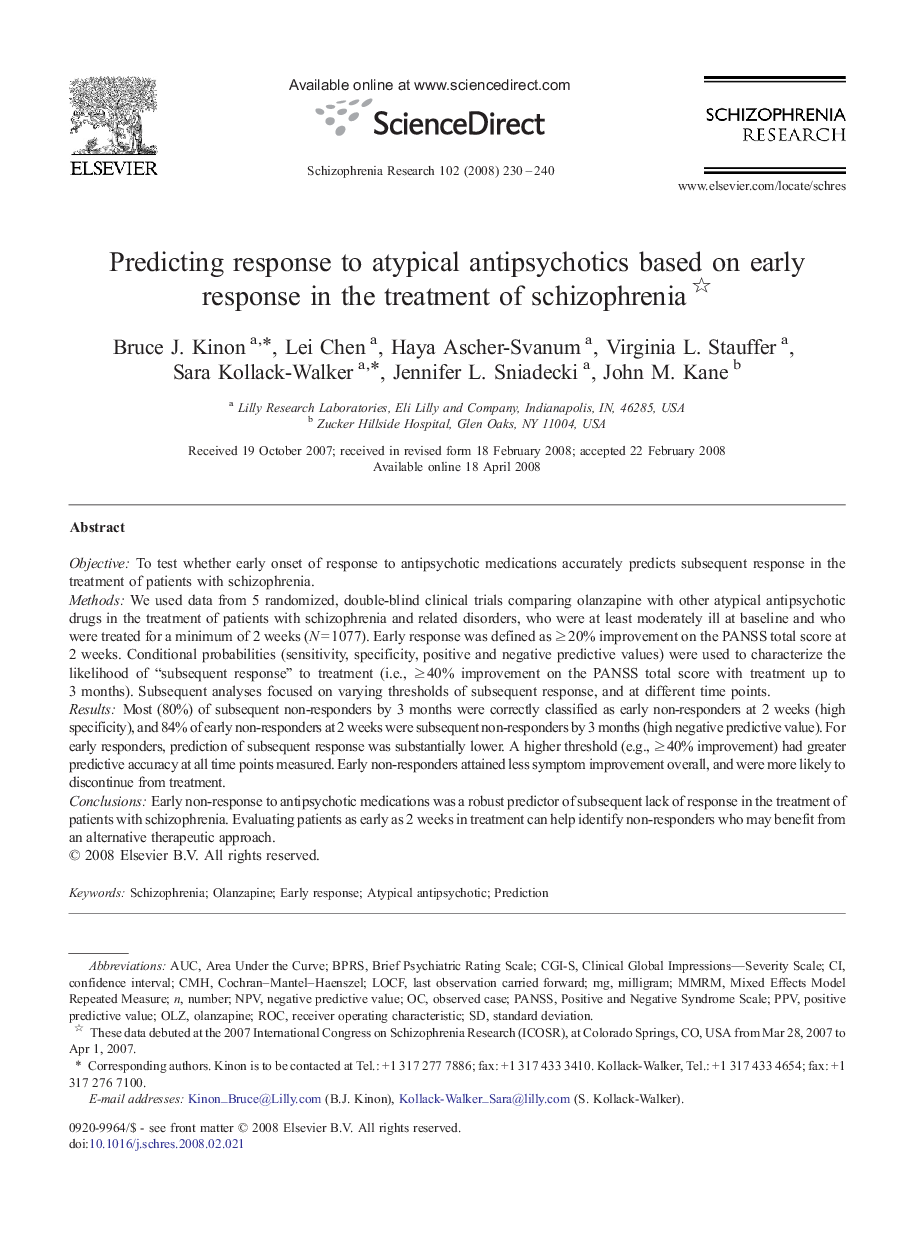| Article ID | Journal | Published Year | Pages | File Type |
|---|---|---|---|---|
| 339945 | Schizophrenia Research | 2008 | 11 Pages |
ObjectiveTo test whether early onset of response to antipsychotic medications accurately predicts subsequent response in the treatment of patients with schizophrenia.MethodsWe used data from 5 randomized, double-blind clinical trials comparing olanzapine with other atypical antipsychotic drugs in the treatment of patients with schizophrenia and related disorders, who were at least moderately ill at baseline and who were treated for a minimum of 2 weeks (N = 1077). Early response was defined as ≥ 20% improvement on the PANSS total score at 2 weeks. Conditional probabilities (sensitivity, specificity, positive and negative predictive values) were used to characterize the likelihood of “subsequent response” to treatment (i.e., ≥ 40% improvement on the PANSS total score with treatment up to 3 months). Subsequent analyses focused on varying thresholds of subsequent response, and at different time points.ResultsMost (80%) of subsequent non-responders by 3 months were correctly classified as early non-responders at 2 weeks (high specificity), and 84% of early non-responders at 2 weeks were subsequent non-responders by 3 months (high negative predictive value). For early responders, prediction of subsequent response was substantially lower. A higher threshold (e.g., ≥ 40% improvement) had greater predictive accuracy at all time points measured. Early non-responders attained less symptom improvement overall, and were more likely to discontinue from treatment.ConclusionsEarly non-response to antipsychotic medications was a robust predictor of subsequent lack of response in the treatment of patients with schizophrenia. Evaluating patients as early as 2 weeks in treatment can help identify non-responders who may benefit from an alternative therapeutic approach.
